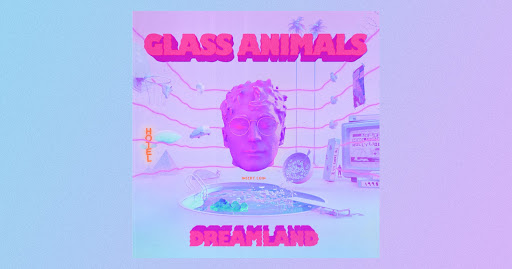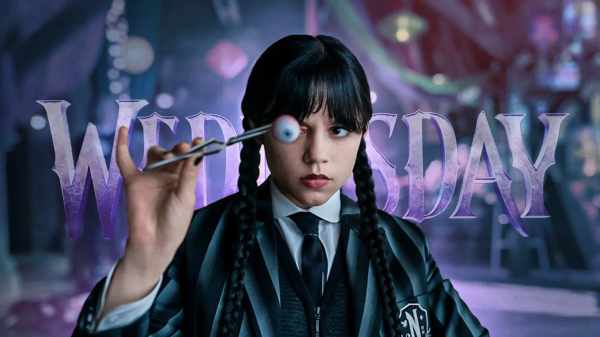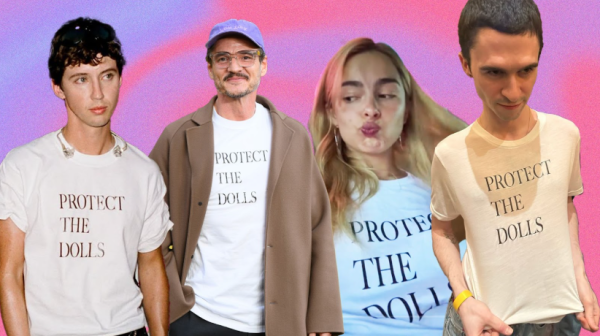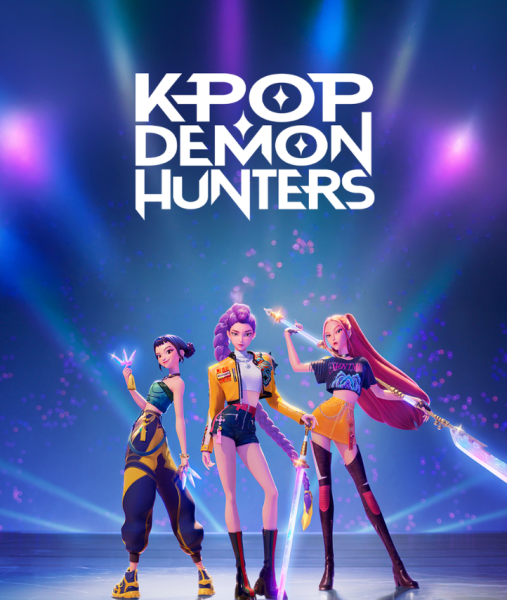Glass Animals’s Dreamland: Astroworld, But Make It Alt

Photo Courtesy of: Glass Animals Website
At first glance, UK pop-psych band Glass Animals’s new album, Dreamland, looks like a candy colored variation of Travis Scott’s Astroworld. But at a closer look, one finds an experimental collection of music that transports them to another world.
Glass Animals, formed in 2010, prides itself on themes. Their first full album, Zaba (2014), tackles jungle sounds and tropical rhythms. It transports you to Madagascar, with a piña colada and snakes biting apples. It was certified platinum in the United States. How to Be A Human Being (2016) is the opposite, a character study placing you on the couch in an American suburb. And Dreamland does not disappoint.
The autobiographical work is a technicolor version of singer Dave Bayley’s origin story. Born to Welsh and Israeli parents, Bayley lived in Massachuchets and Texas before moving to England at 14. In this album, he “creates his own Sasha Fierce” by telling his stories from the persona of Wavey Davey. An alter ego like this is “allows you to do things you’re not comfortable with,” says the singer.
Starting out with the title song, an echoey groove, the stage is set for what will be 45 minutes of surrealism. “Tangerine” follows, introducing us to the first of a few epic introductions. In several tracks, Glass Animals gives us a hip-hop like drop following a mellow start to the song. The more pop-y, hyperactive tracks are interspersed among slow, dreamlike ones; “Hot Sugar,” “Melon and the Coconut,” and “Waterfalls Coming Out Your Mouth.” Denzel Curry punches through the euphoria of “Tokyo Drifting” with a fiery rap. The track is the token hype song, without sacrificing the consistency in production of the album.
Throughout Dreamland, there are four interludes, 30-60 seconds long, called “((home movie))”s. These slices of Bayley’s childhood give the listener a nostalgic feeling, placing us in memories we never had. Many of them, like “((home movie: rockets))” segway seamlessly into tracks like “Domestic Bliss,” which captures Bayley’s first experience with domestic violence. The audio clips for the home movies are actual videos from Bayley’s childhood made by his mother.
This unique pattern creates an album that’s meant to be listened to in its entirety. Recently, works like Childish Gambino’s “3.15.20” have attempted to bring back the idea of a cohesive album, what seems like a tenet of lost generations. However, “3.15.20” did the worst of any of Gambino’s albums. The option for most artists now seems to be albums with identifiable hits, a mark which Dreamland hits. The top track, “Heat Waves,” not only has over 20 million streams, but also fits into the album’s structure seamlessly. Glass Animals distinguishes themselves from these polarizing intentions, creating hits without sacrificing artistry.
Dreamland is, at heart, a story. There are high points, making you feel like you’re atop Mount Everest, and low ones, making you an invisible viewer of tragic scenes. Much of modern music lacks a concept like this. Glass Animals creates an amalgamation of modern pop, hip hop, and their own electronic signature.
https://pitchfork.com/reviews/albums/glass-animals-dreamland/
https://www.thecurrent.org/feature/2020/08/07/album-of-the-week-glass-animals-dreamland
https://en.wikipedia.org/wiki/How_to_Be_a_Human_Being







